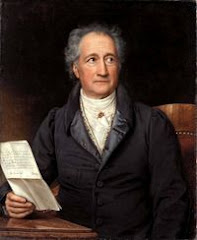After all the reading and discussions of the Reformation, it really seems to be that the original religious ideas and aims of Martin Luther were hijacked by the commoners and then the Nobility/Burghers. I think that everyone can agree, that Martin Luther's and the commoners disgust and anger with the selling of indulgences was rightly based on common sense. These commoners, the first to side with Luther, would become the first to used his ideas for their own means by eventually engaging in all out warfare against the nobility. Martin Luther being a smart pious man, decided that while he had sympathized with their cause and quest for better living conditions and such, that senseless violence was not the way and joined up with the nobility. The real coup to Luther's attempted reforms within the church came with the nobility. It was these nobles that found it politically advantageous to side with Luther. Unlike the commoners, whose small income was drained for the paying of indulgences, the nobility had money. Their main gripe, like during the earlier times of the Holy Roman Empire, was their anger at the Kaiser for attempting to control them and also the Pope. The majority of the nobles that ended up become Protestant must of seen it as a way to gain more power than having any actual religious convictions.
Greg
Friday, February 15, 2008
Subscribe to:
Post Comments (Atom)







.jpeg)


3 comments:
I completely agree that the Reformation became intensely political. Martin Luther's theses provided various princes and kings with evidence against the benevolence of Papal power and gave them a perfect opportunity to gain power by joining the Reformist movement. I believe that if Martin Luther knew about the bloody European infighting that would result, especially in Germany during the Thirty Years War, he could never have brought himself to make such bold criticisms against the church.
I also agree that Martin Luther, while voicing very new and seemingly radical concepts, was not seeking to drastically alter society as he knew it. Others during this Reformation did seek to fix social injustices through radical means and peasant uprisings (Florian Geyer, Thomas Müntzer, etc.), but Martin Luther harshly criticized peasant uprisings and the violence they employed. It seems that one of the reasons that we know so much about Martin Luther today, is because he did side with the aristocracy and the existing social hierarchy. In East Germany and Russia before the break-up of the Soviet Union, social revolutionaries like Thomas Müntzer were highly touted historical figures.
- Garth Fox
Ich verstehe das was sie sagt, aber ich bin nicht einverstanden mit der Ahnung, daß Martin Luther die Reformation nicht anführen würde, wenn er wüsste, daß es so viele Gewalttaten geben würde. Meiner Meinung nach würde es ihm egal sein, solange die Kirche mit dem Ablasshandel beenden würde. Ja, persönlich war er Pazifist, aber so ein frommer Mann mußte wissen, wo die Werte lagen, und seine Werte lagen in Gott, Christus, Glaube, und Gnade Gottes. Obwohl es einen Krieg gab, wusste Luther, daß die Kirche abgestellt werden musste.
The above post was made by one Rebekah Green.
Post a Comment